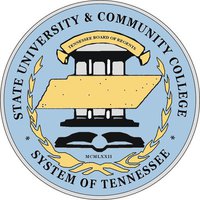 Nashville, TN – The Tennessee Board of Regents approved increased tuition and fee rates today for the six universities, 13 community colleges and 27 technology centers it governs. The board also approved a plan to provide a 3 percent cost of living increase for TBR employees.
Nashville, TN – The Tennessee Board of Regents approved increased tuition and fee rates today for the six universities, 13 community colleges and 27 technology centers it governs. The board also approved a plan to provide a 3 percent cost of living increase for TBR employees.
Maintenance fee and tuition increases will result in an 8.8 percent revenue increase for Austin Peay State University, East Tennessee State University, and Tennessee State University; a 9.8 percent revenue increase at Middle Tennessee State University and Tennessee Tech University, and an 11 percent revenue increase at the University of Memphis.
The new rates will generate 9.5 percent revenue increases at all of the state’s community colleges and Tennessee Technology Centers.
APSU, ETSU and TSU in-state undergraduate students taking 12 hours will pay $192.00 more each semester for tuition/maintenance fees. MTSU and TTU students will pay $216.00 more, and UofM students will pay $288.00 more. Community college students will pay $132 more per semester, and TTC students will pay $80.00 more per trimester.
“It pains us to raise tuition on our campuses,” said TBR Chancellor John Morgan. “Unfortunately, as the state’s capacity to fund higher education continually erodes, students are forced to pick up more of the cost to provide a quality education.
“Even after the tuition increases, every TBR institution will continue to operate with fewer revenues per student than they had in 2008. Technology Centers will end up with almost 12 percent less funding per student, community colleges will have about 11 percent less, and universities will face almost 5 percent less. And that’s not adjusting for inflation,” he stressed.
“At the same time, we have greatly reduced costs at all of our institutions. Most of our campuses have eliminated personnel; operating costs have been slashed; travel budgets are decimated; academic programs have been eliminated or restructured. But we remain committed to providing quality programs and services to help students succeed and to address the goals of the Complete College Act.”
Rates will differ for students depending on the number of credit hours they take.
Beginning in 2009, the TBR decided to stop “capping” tuition charges at 12 hours (until then, students who enrolled in more than 12 credit hours a semester only paid for the first 12). To gradually remove that cap, TBR institutions began charging credit hours over 12 at a greatly discounted rate, which will be lowered to 80 percent this fall.
For example, in-state, undergraduate students at APSU would pay 8 percent or $16.00 more for each of the first 12 hours they take, then $13.00 more for each hour above 12. University of Memphis students will pay $24.00 more (10.3 percent) for each of the first 12 hours and $16.00 more for each additional hour.
Public higher education institutions across the state are facing severe budget shortfalls again this year.
TBR campuses are dealing with a loss of substantial dollars – more than $170 million — in Federal Recovery Act funding. All have faced continued enrollment growth while most have reduced the numbers of faculty and staff available to serve those students’ needs in recent years.
All of public higher education must address an additional 2 percent cut in state funding for the coming year. This additional reduction comes on top of nearly 30 percent cuts for TBR institutions between 2008 and 2011. Campuses are facing additional inflationary costs, including increased utilities, benefits, supplies, etc. that require funding to operate.
All institutions are working to meet greater expectations and challenges associated with the requirements of the Complete College Tennessee Act passed last year.
And higher education employees have worked without cost of living increases or general raises for the past four years. While the legislature approved a 1.6 percent salary increase for state employees, that amount was not fully funded for higher education. The difference in funding needed, as well as any additional raises, will be funded through student fees.
The TBR also approved a 3 percent cost of living allowance for employees.
To address pay concerns, the board approved a 3 percent salary pool for all regular, eligible employees of TBR, effective July st1. The cost-of-living increase will provide a minimum $750.00 (or 3 percent, whichever is greater) to lessen the disparate impact on the lower paid employees. TBR institutions will also be able to submit plans for additional increases in September to address campus compensation plans, salary compression issues, and below market salaries if funds are available.
The TBR is the nation’s sixth largest higher education system, governing 46 post-secondary educational institutions and providing programs in 90 of Tennessee’s 95 counties to more than 200,000 students.


